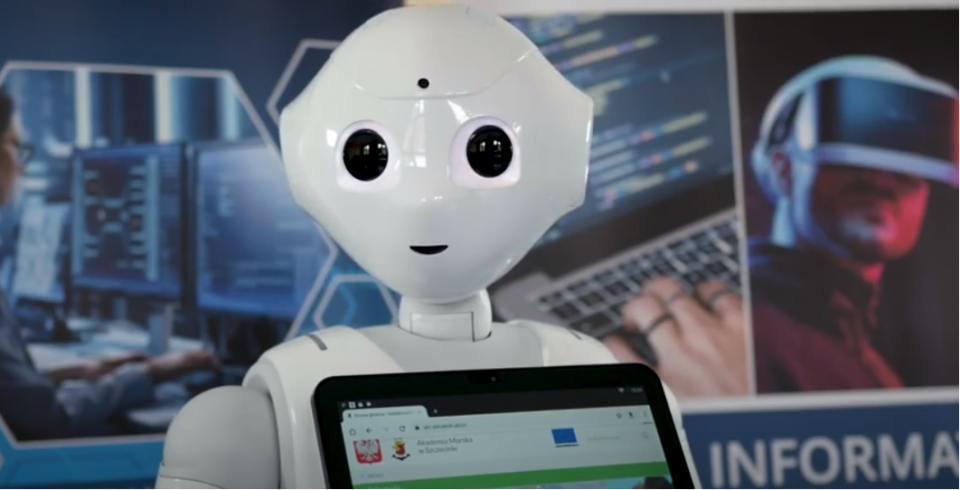The document we developed: Introduction to the Polish approach to include IT competences in maritime education and training was submitted to the IMO a while ago.

This document provides information about courses on IT competences conducted at maritime universities in Poland with references to the Maritime University of Szczecin (MUS).
As for now we need to answer the question: "Do we need IT competences in marine education?"
At the Maritime University of Szczecin, it is the safety of: cargo, ships, shipping, the environment - and above all: people at sea - that is the most important value, the first reason for our work and the most important effect.
According to reports, in 2019 alone, there were 1,173 serious accidents and incidents at sea, 941 people were injured in these accidents, as well as 53 fatalities. As a result, 25 ships were destroyed. [source: Safety4Sea]. Various sources show that from 65 to even 90% of accidents are the result of the so-called “the human factor”.
In our activities, we believe that the knowledge of navigators, supported by highly developed technology, can help reduce the number of accidents and increase safety in maritime traffic.
That is why comprehensive actions are needed: in addition to the technology introduced, the focus should be on effective and comprehensive education and training of crews.
our goal is a safe person, thanks to technology actively and effectively taking care of the safety of the above-mentioned.That is why a new perspective is needed now. Technological progress does not wait. Already at the stage of officer training, we must pay more and more attention to operating skills and understanding of information technology that a seafarer encounters on a ship. We also envision a bold vision to create a position of an officer on ships soon, who will concentrate knowledge and service of efficient systems communicating with each other at sea and responding to signals from the air and land.
Which seamen (officers on board) should have IT knowledge and skills? Let's admit we don't know. Let us invite IMO countries to discuss.
A secure future requires a new perspective and specialists of the times.
MUS’ approach:
From this perspective – Maritime University of Szczecin (MUS), one of the maritime universities in Poland, provides high-standard education and training in Polish and English. The university – anticipating the market demand – has established a separate faculty in computer sciences and telecommunications. One of its main education goals is to train computer specialists/professionals for the maritime sector. The University has elaborated a relevant IT degree programme.
As for now we need to answer the question: "Do we need IT competences in marine education?"
The history of shipping and maritime transport has a long tradition. However, it is marked by constant change and the drive for innovation.
Today, the latest technology appears in every aspect of our lives, including shipping – the tools that will appear on board ships (or will appear soon), future technologies for shipping are:- unmanned and autonomous shipping
- process automation and decision support systems (electronic maps, navigation systems)
- artificial intelligence and augmented reality, VR laboratories, navigation tables, humanoid robots
- development of the Maritime University of Szczecin towards digital technology, infrastructure investments: the interdisciplinary Center for the Operation of Floating Objects, which is currently under construction
At the Maritime University of Szczecin, it is the safety of: cargo, ships, shipping, the environment - and above all: people at sea - that is the most important value, the first reason for our work and the most important effect.
According to reports, in 2019 alone, there were 1,173 serious accidents and incidents at sea, 941 people were injured in these accidents, as well as 53 fatalities. As a result, 25 ships were destroyed. [source: Safety4Sea]. Various sources show that from 65 to even 90% of accidents are the result of the so-called “the human factor”.
In our activities, we believe that the knowledge of navigators, supported by highly developed technology, can help reduce the number of accidents and increase safety in maritime traffic.
That is why comprehensive actions are needed: in addition to the technology introduced, the focus should be on effective and comprehensive education and training of crews.
our goal is a safe person, thanks to technology actively and effectively taking care of the safety of the above-mentioned.That is why a new perspective is needed now. Technological progress does not wait. Already at the stage of officer training, we must pay more and more attention to operating skills and understanding of information technology that a seafarer encounters on a ship. We also envision a bold vision to create a position of an officer on ships soon, who will concentrate knowledge and service of efficient systems communicating with each other at sea and responding to signals from the air and land.
So – do we need IT competences in marine education?
Centers should be able to educate in conditions of new challenges. The IT learning outcomes should be included in the concept of training seafarers.Which seamen (officers on board) should have IT knowledge and skills? Let's admit we don't know. Let us invite IMO countries to discuss.
A secure future requires a new perspective and specialists of the times.
MUS’ approach:
From this perspective – Maritime University of Szczecin (MUS), one of the maritime universities in Poland, provides high-standard education and training in Polish and English. The university – anticipating the market demand – has established a separate faculty in computer sciences and telecommunications. One of its main education goals is to train computer specialists/professionals for the maritime sector. The University has elaborated a relevant IT degree programme.


